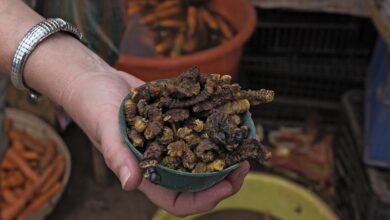Private Grain Sales Now Legal.

A ban that was placed 3 months ago on private grain sales has been lifted.
Three months ago the government had banned private grain sales and just yesterday Minister of Land, Agriculture, Water, Climate and Rural Resettlement Perrance Shiri said those intending to sell grain privately can obtain required licensing from relevant authorities and start to trade.
“All those who want to import grain are free to do so , be it for domestic consumption or resale. It is up to the individual. Import licences can be secured from the Ministry of Lands and agriculture. There is no limit to the amount of grain you can import into the country” he said
“One will actually be complementing Government efforts by importing grain.
“If there is any who intends to import, they are most welcome to do so and they can approach AMA (Agricultural Marketing Authority) for the necessary licences. Licences can easily be availed so that those with free funds can actually import grain into the country.”
The intervention comes at a time when Zimbabwe has suffered reduced yields as a result of drought experienced last season. The country needs an estimated 800 000 tonnes of maize imports to cover the gap up to the next harvest and Government has assured the nation that no one will starve.
The country, whose national grain requirement stands at 1,8 million tonnes, will be importing the bulk of the maize from Southern African countries.
The National Railways of Zimbabwe (NRZ) has already started bringing in part of the grain consignment imported from Tanzania.
You can see the latest prices for basic goods by clicking here.
If you want to be added to our WhatsApp broadcast list please save our number +263 775 378 769 and then text ‘Add' to that WhatsApp number. If you don't save the number you will not get our broadcasts when we publish new content.
Although Government had earlier banned private grain sales and restricted the business to GMB, the minister explained that all Government efforts regarding grain imports were informed by the fact that the country did not get enough cereals or grain last season due to drought, hence the need to prioritise allocations.
“As a result, Government has had to put into place arrangements for the importation of grain. The grain that is being imported shall be for human, livestock consumption and other industrial uses. Government is one such buyer and supplier of cereals, there is nothing which stops all other players in the industry to import their own cereal requirements,” Minister Shiri said.
He noted that while Government was seized with grain allocations to those in critical need for human consumption, farmers could access spoiled grain from GMB, which may not necessarily be suitable for human consumption, but can be used for livestock.
Minister Shiri revealed the new guidelines while responding to questions during a Senate session in Harare last week.
This was after Senator Elias Mudzuri had sought clarity on Government policy regarding the sustainability of small stock industries such as piggery and poultry. Sen Mudzuri had argued that farmers were unable to access grain for purposes of animal feed at GMB depots.
The Upper House discussed the urgent need to prioritise stockfeed and noted in particular concerns over livestock deaths, mainly in the southern parts of the country.


























